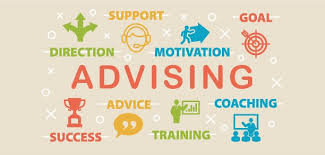The Role of Academic Counseling in Student Success
Academic counseling is a crucial component of the Academic counseling educational experience, serving as a supportive resource for students navigating the challenges of their academic journeys. While the role of an academic counselor might seem straightforward—helping students select courses or plan for graduation—its impact extends far beyond these tasks. Academic counseling plays an essential role in student success, not only by guiding academic choices but also by providing emotional support, facilitating personal growth, and ensuring that students have the resources they need to thrive.
What is Academic Counseling?
Academic counseling is a professional service provided by trained counselors who assist students in making informed decisions about their academic paths. These counselors help students understand the academic requirements for graduation, explore potential career options, and address any challenges they might encounter during their studies. Academic counselors are knowledgeable about the curriculum, degree programs, and university policies, which allows them to provide students with accurate and timely information to make the best decisions for their future.
The Benefits of Academic Counseling
- Guidance on Course Selection and Degree Planning One of the most well-known functions of academic counseling is helping students choose courses that align with their academic goals. Counselors ensure that students are aware of prerequisites, required courses, and electives, and help them plan each semester to avoid bottlenecks in their academic progress. By helping students map out their educational journey from start to finish, academic counselors play a pivotal role in ensuring that students meet all the necessary graduation requirements on time.
- Career Exploration and Development Academic counselors also help students link their academic choices with future career goals. By discussing career interests, skills, and aspirations, counselors can recommend relevant courses, internships, or extracurricular activities that align with a student’s future ambitions. This guidance can assist students in selecting majors or minors, engaging in career-focused activities, and preparing for the job market after graduation.
- Emotional and Personal Support The college experience is not just about academics; it’s also about personal growth and development. Many students face emotional, social, or financial challenges that can affect their academic performance. Academic counselors provide a safe and confidential space for students to discuss these challenges, helping them find solutions or refer them to additional campus resources, such as mental health services or financial aid support. A counselor’s ability to listen and provide support can significantly impact a student’s mental well-being, helping them stay motivated and engaged in their academic pursuits.
- Navigating Academic Struggles Academic counselors help students overcome difficulties related to learning, such as poor grades, time management issues, or lack of motivation. Counselors may assist students in developing study strategies, provide resources for tutoring or academic workshops, and help them set realistic goals. For students who are struggling academically, counselors can provide insights into how to improve their study habits, manage stress, and access support systems on campus to enhance their chances of success.
- Fostering Student Engagement Academic counseling encourages student engagement by helping students explore co-curricular activities, such as clubs, volunteer work, research opportunities, and leadership roles. These activities complement classroom learning and provide students with valuable experiences that can enhance their skills and build their resumes. Counselors can also help students balance academic responsibilities with other aspects of college life, ensuring they maintain a well-rounded and fulfilling experience.
The Importance of Early Counseling
Early intervention is key when it comes to academic counseling. Students who seek guidance early in their academic careers are more likely to stay on track and avoid common pitfalls, such as dropping out, failing courses, or delaying graduation. Academic counselors can help freshmen and transfer students adjust to the demands of college life, ensuring that they are aware of available resources and familiar with the academic expectations of their institution. Early counseling can also prevent students from making hasty decisions, such as switching majors or dropping out, by providing them with more information and perspective.
The Evolving Role of Technology in Academic Counseling
With the advent of digital technology, academic counseling has evolved to meet the needs of today’s students. Many colleges and universities now offer virtual counseling sessions, allowing students to access academic advice from anywhere. Online tools, such as degree audits, academic planners, and career assessment quizzes, further enhance the counseling process by providing students with instant access to important information. While these tools are helpful, they are most effective when combined with the personal touch of a counselor who understands the individual needs of each student.
Conclusion
Academic counseling is a dynamic and essential service that supports students in making informed decisions about their academic and professional futures. By providing guidance on course selection, career development, emotional support, and strategies for academic success, counselors ensure that students are well-prepared to thrive in their academic pursuits. As educational institutions continue to adapt to the changing needs of students, academic counseling remains a cornerstone of student success, helping to create a positive and supportive environment for learning. Whether through personalized one-on-one sessions or digital resources, academic counselors play an integral role in shaping students’ academic experiences and setting them on the path to success.

